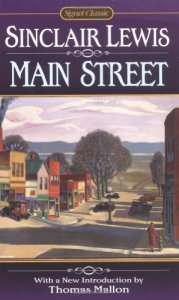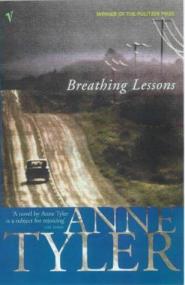 The Glass Castle (by Jeannette Walls)
The Glass Castle (by Jeannette Walls)
This is a fantastically written autobiography. Jeannette grows up helter-skelter with a Mom who doesn’t really want to be mothering and a Dad who swings between bouts with the bottle and wonderful times with his children, teaching them everything from the Morse Code to the names of the constellations. All the children dream of escaping to New York City, and the recklessness of their parents fosters a unique independence and creativity in each one of them. As Jeanette starts ‘making it’ in NYC, graduating from Barnard and living on Park Avenue, her parents become homeless Manhattanites. This very personal account of a family of smart, educated, artistic people who nonetheless end up on a path of foraging for food and squatting in abandoned buildings is fascinating, sad, uplifting, and always riveting.
The Time Traveler’s Wife (by Audrey Niffenegger)
The first hundred pages, I wasn’t sure what to think of this book. But around page 120 or  so, I was at least committed to finishing it. I have ambivalent feelings for it–on one hand it’s an interesting love story, the plot thickens nicely as it goes along, and there is suspense til the end. By the end I was definitely loving the characters, and definitely crying. Real tears. Into my coffee. Oh, and it takes place in Chicago, so I’m actually familiar with the restaurants the characters dine at–Ann Sather’s, Opart Thai, etc. and the streets they walk. On the other hand, the writing is a little pop-culture. There’s a lot about the sexual relationship between the main characters, with too much detail for my taste. Too much. So do I recommend it? Yes, but with some reservations.
so, I was at least committed to finishing it. I have ambivalent feelings for it–on one hand it’s an interesting love story, the plot thickens nicely as it goes along, and there is suspense til the end. By the end I was definitely loving the characters, and definitely crying. Real tears. Into my coffee. Oh, and it takes place in Chicago, so I’m actually familiar with the restaurants the characters dine at–Ann Sather’s, Opart Thai, etc. and the streets they walk. On the other hand, the writing is a little pop-culture. There’s a lot about the sexual relationship between the main characters, with too much detail for my taste. Too much. So do I recommend it? Yes, but with some reservations.
To Kill a Mockingbird (by Harper Lee)
Most of you may have read this, since my husband informs me that it is prime high school reading material here. However, not having grown up in the States I was woefully deprived  of this experience until now.
of this experience until now.
What a book! I was glued to the pages. It reminded me of Peace Like a River because I really admired the character of the father. His love and goodness in the face of the hatred and evil in others, his compassion for human weakness, and his stalwart stance on moral issues encouraged me as a human being to strive for more. I feel that it’s rare to come across a novel that is morally uplifting. So often today’s novels dwell on depressed characters who run to sex with their problems–half of my English major at IU was unfortunately spent studying these authors and these texts. So to encounter a book like this that challenges the very heart of its reader is rare and beautiful.
Just Kids (by Patti Smith)
This autobiography chronicling Patti Smith’s childhood through mid twenties is a gem of a book. The book centers around her rleationship with the artist Robert Mapplethorpe.
The book feels to me like a time of innocence.
Living at the Hotel Chelsea and hanging out with artists such as Janis Joplin, Allen  Ginsberg, Jimi Hendrix and Andy Warhol, Patti and Robert struggle to pay the bills. During their early days together, they have so little money that only one of them could afford to enter the art museum, while the other waited outside, eagerly awaiting lengthy descriptions of all the art from the other.
Ginsberg, Jimi Hendrix and Andy Warhol, Patti and Robert struggle to pay the bills. During their early days together, they have so little money that only one of them could afford to enter the art museum, while the other waited outside, eagerly awaiting lengthy descriptions of all the art from the other.
Patti Smith starts her artistic journey in poetry but explores and excels in the visual arts, and dabbles in acting and modeling and photography. Someone tells her that her poems would make good songs, so she buys a guitar and starts messing around with music. I was personally inspired by her fearlessness of the medium. She saw herself as an artist, and that energy and vision could be channeled into any form–painting, drawing, music, writing.
As a child, on a family excursion to the Philadelphia Museum of Art, she says “[this was the first time] I came face-to-face with art . . . I’m certain, as we filed down the great staircase, that I appeared the same as ever, a moping twelve-year-old, all arms and legs. But secretely I knew I had been transformed, moved by the revelation that human beings create art, that to be an artist was to see what others could not.”
Of her relationship with Robert, Patti says, “Our social differences, however exasperating, were tinged with love and humor. In the end, we were more alike than not, and gravitated toward each other, however wide the breach. We weathered all things, large and small, with the same vigor. To me, Robert and I were irrevocably entwined, like Paul and Elisabeth, the sister and brother in Cocteau’s Les Enfants Terribles. We played similar games, declared the most obscure object treasure, and often puzzled friends and acquaintances by our indefinable devotion.”
I loved this book.
The Sense of an Ending (by Julian Barnes)
This short little novel proved so delightful. A small book, only 163 pages long, I read it in 2 days. In the form of an autobiography, the narrator Tony Webster talks about his youth in the 60s, his high school friendships, love relationships and failed marriage, and his special friendship with Adrian, a brilliant individual whose decision impacts Tony’s life many, many years after their relationship ends. About Adrian, Tony says “While we luxuriated in  the doldrums of adolescence, imagining our routine discontent to be an original response to the human condition, Adrian was already looking farther ahead and wider around . . . In Adrian’s terms, I gave up on life, gave up on examining it, took it as it came . . . I had wanted life not to bother me too much, and had succeeded–and how pitiful that was.” That last sentence gives me the chills. So often I don’t want to be bothered, inconvenienced, I don’t want too much to be required of me–but if all those things are true, what kind of life would I live? That sentence stuck like a burr in my brain after reading it. I love it when a book shoots zingers into your soul like that and forces you to think about your own life.
the doldrums of adolescence, imagining our routine discontent to be an original response to the human condition, Adrian was already looking farther ahead and wider around . . . In Adrian’s terms, I gave up on life, gave up on examining it, took it as it came . . . I had wanted life not to bother me too much, and had succeeded–and how pitiful that was.” That last sentence gives me the chills. So often I don’t want to be bothered, inconvenienced, I don’t want too much to be required of me–but if all those things are true, what kind of life would I live? That sentence stuck like a burr in my brain after reading it. I love it when a book shoots zingers into your soul like that and forces you to think about your own life.
As a retired man in his 60s, Tony looks back at all this with hindsight, humor, and not a little wisdom. In the first few pages he says of his adolescence, “In those days, we imagined ourselves as being kept in some kind of holding pen, waiting to be released into our lives. And when that moment came, our lives–and time itself–would speed up. How were we to know that our lives had in any case begun, that some advantage had already been gained, some damage already inflicted? Also, that our release would only be into a larger holding pen, whose boundaries would be at first undiscernible.”
Barnes packs so much meaning into short sentences–and yet the book doesn’t feel dense. Just rich. Amidst the action and dialogue there are short paragraphs of musings about the difference between guilt and remorse, the definition of nostalgia, the weight of contempt.
In the second half of the book, 60-something-year old Tony is confronted with an old journal, a mysterious inheritance of 500 pounds, and a dry and barbed email exchange with an old girlfriend. He goes on a mission to reclaim something that is lawfully his, and essentially “overcome contempt and turn remose back into guilt, then be forgiven.” About that endeavor he says “I don’t think I normally suffer from vanity, but I’d clearly been more afflicted than I realised. What had begun as a determination to obtain property bequeathed to me had morphed into something much larger, something which bore on the whole of my life, on time and memory. And desire. I thought–at some level of my being, I actually thought–that I could go back to the beginning and change things.”
Yes, there’s some sex, but it’s very relevant to the plot and not too graphic (though I guess that depends on what else you’ve been exposed to). Overall it’s a wonderful combination of narrative with musings about the human condition that I found both stimulating and relaxing–like a good hot mug of peppermint tea.
And it also won the 2011 Man Booker Prize.
On that note, if you guys have any book recommendations for me, I’m always on the troll for the next wonderful read.



